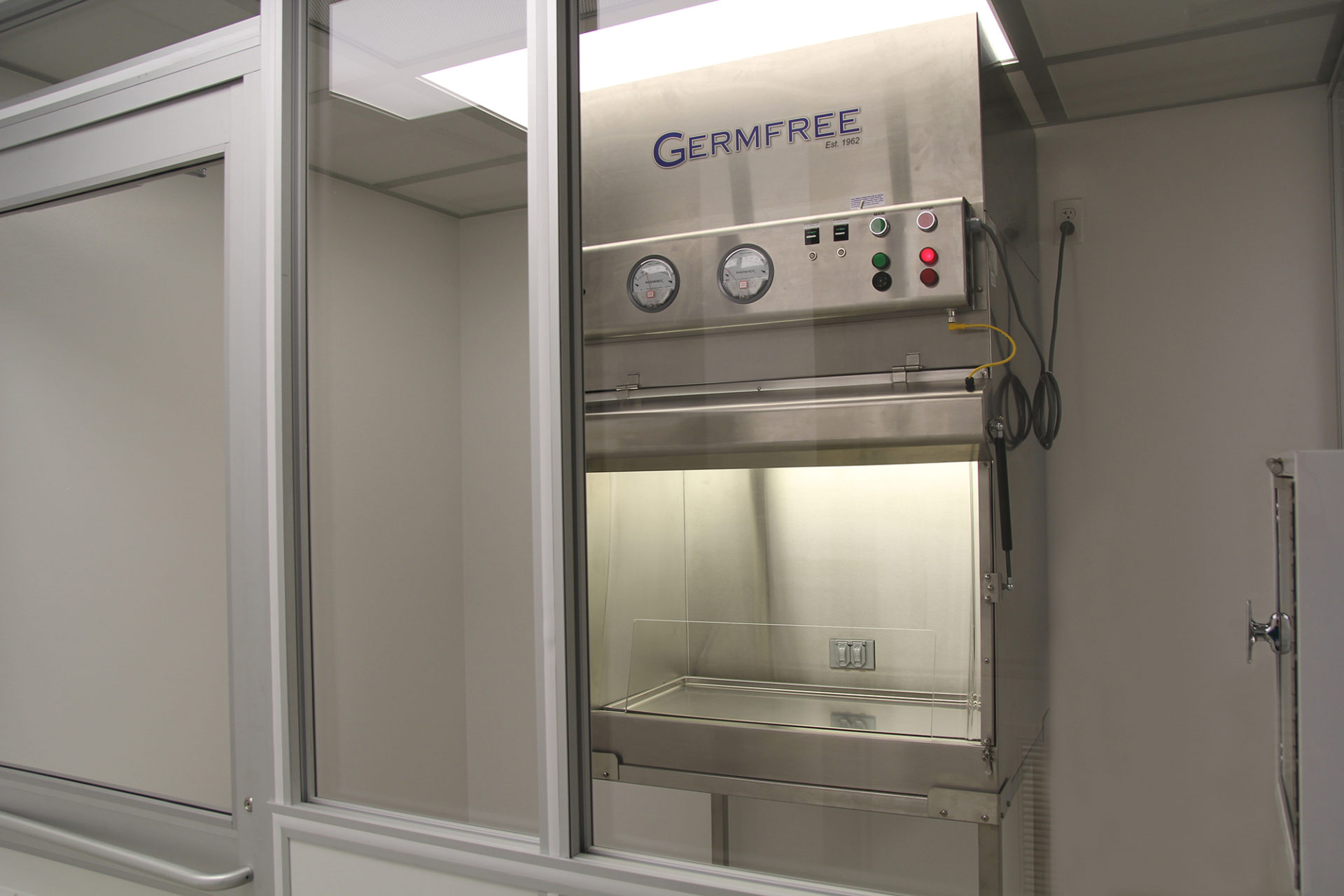
New Clinical Research Pharmacy Cleanroom
Published: 02-10-2020 | 1 MIN READ | Author: Prism Health North Texas
Construction was recently completed on the Clinical Research Pharmacy Cleanroom, including the installation of a biological safety cabinet. Cleanrooms are designed to maintain extremely low levels of particulates, such as dust, airborne organisms, or vaporized particles. A biological safety cabinet (also called a hood) is an enclosed, ventilated workspace that allows the research pharmacist to safely prepare and mix sterile compounds for infusion or injection without contamination, which could cause an adverse reaction in the patient. The cleanroom requires continuous airflow of positive pressured HEPA-filtered air to create a negative pressure airflow into the hood, and all of the air entering through the hood is ducted and vented to the outside of the building.
The installation of the hood and construction of the cleanroom was necessary in order for our clinical research site to participate in research studies of novel treatments such as broadly neutralizing monoclonal antibodies. These new treatments are administered via intravenous (IV) infusion, and these infusions must be prepared in a sterile fashion to prevent infection or other adverse effects. These novel compounds are being studied with the hope of making advances towards a cure or functional cure for HIV.
Broadly neutralizing monoclonal antibodies (bNABs) are a type of antibody that can recognize and block many types of HIV from entering healthy cells. The development of bNABs and their derivatives have led to new immune-based investigational products being studied for HIV treatment, prevention, and potentially a cure. They are a part of the National Institute of Health’s (NIH) Strategic Plan for HIV and HIV-Related Research.
Studies are now being conducted in people currently suppressed on antiretroviral therapy (ART) to determine whether periodic infusions or injections of bNABs can induce an HIV remission once ART is stopped. These bNABs may also activate other immune cells to help destroy HIV-infected cells, and researchers are investigating whether bNABs could be used to develop a therapeutic HIV vaccine.
A therapeutic HIV vaccine is a vaccine that is designed to improve the body’s immune response to HIV. Researchers are exploring therapeutic HIV vaccines to slow down the progression of HIV and to eliminate the need for ART to keep HIV suppressed or undetectable.
Prism Health North Texas is currently a network site of the NIH’s AIDS Clinical Trial Group (ACTG). The ACTG is currently conducting three clinical trials that are actively enrolling participants studying these types of antibody-based therapies, and six more clinical trials are in development. In addition, the ACTG is conducting a study of long-acting injectables (cabotegravir and rilpivirine) as a new treatment option for non-adherent patients. The ACTG requires these injections be prepared and mixed in a sterile fashion utilizing a biologic safety cabinet. These studies are exciting and will provide valuable data regarding the safety, tolerability, and effectiveness of these potential new types of treatments.
References: aidsinfo.nih.gov, niaid.nih.gov



